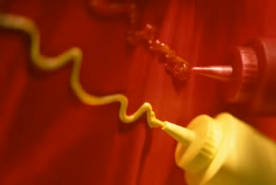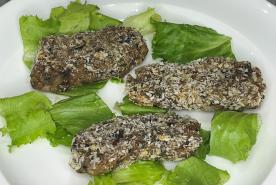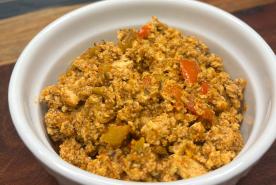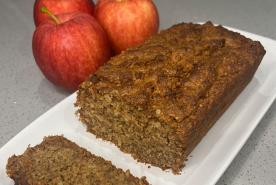Last Updated: March 03, 2024
Medically reviewed by NKF Patient Education Team
Cherries come in sweet, sour, and duke (partly sweet and sour) varieties, and can be bought fresh, frozen or dried. Cherries can add sweet or tart flavor to salads, smoothies, savory dishes, and desserts. Choose cherries that are firm with bright green stems; darker colored cherries are the most flavorful. The pits are toxic and should not be eaten.
Why are Cherries a Superfood?
- Cherries are a good source of vitamin C, fiber, potassium, vitamin B6, and magnesium. Sour/tart cherries have more vitamin C and over 20 times the amount of vitamin A than sweet cherries.
- Cherries contain many antioxidants, which support the immune system, heart health, and may reduce the inflammation from conditions such as gout.
- One of the antioxidants in cherries is phytomelatonin, which may help to promote a healthy circadian sleep cycle.
Cherries and Kidney Disease
Cherries can be included in the diet for all stages of kidney disease. Cherries contain only trace amounts of sodium and are low in phosphorus. Sweet cherries are high in potassium (>200 mg in 3.5 ounces, which is almost one-half cup), while sour cherries are considered a low potassium food (<200 mg in 3.5 ounces). Your kidney dietitian will tell you if you need to limit potassium and can help you fit cherries into your diet.
Cherry Barbecue Sauce
Portions: 24
Serving Size: 2 Tbsp
Ingredients
- 1 medium onion, chopped
- 2 tablespoons olive oil
- 2 garlie cloves, minced
- 2 cups tomato sauce
- 1-1 1/2 cups pitted cherries (frozen or fresh), chopped
- 1 1/4 cup brown sugar
- 1 1/3 cup apple juice, unsweetened
- 1 1/4 cup apple cider vinegar
- 1 teaspoons chili powder
- 1 1/2 teaspoons dry mustard
- 1 teaspoon cayenne pepper (optional
Preparation
- Heat olive oil over medium h eat. Add onion and cook until softened, about five minutes. Add garlic and cook one more minute.
- Add tomato sauce, cherries, brown sugar, apple juice, apple cider vinegar, chili powder, mustard and cayenne (if using.) Bring to a boil, then reduce heat to low and simmer 30 minutes, or until sauce thickens. Stir frequently.
- Transfer to blender and blend until smooth.
Helpful Hints
- Flavor will vary depending on cherry type. Use sweet cherries for a sweeter sauce and tart cherries for a little zing.
- store sauce in the refrigerator up to one month.
- use in any recipe that calls for barbecue sauce.
Submitted by: DaVita renal dietitianTara from Michigan (davita.com/diet-nutrition/recipes/sauces-seasonings/cherry barbecue-sauce)
This content is provided for informational use only and is not intended as medical advice or as a substitute for the medical advice of a healthcare professional.

















